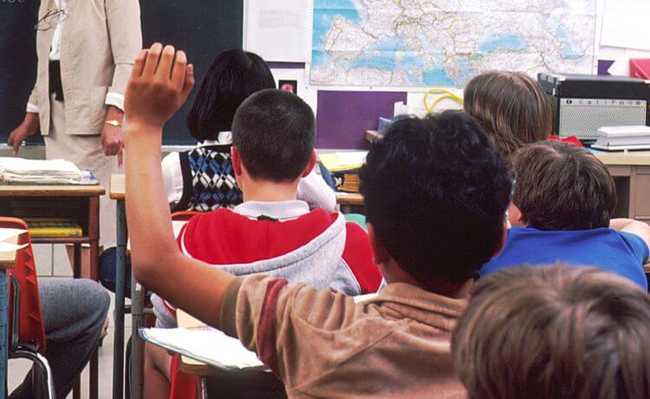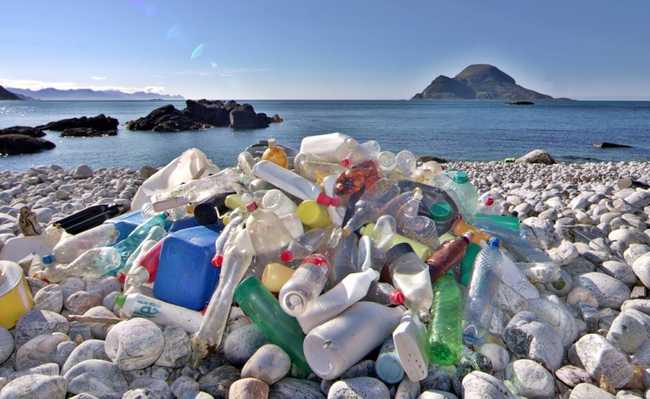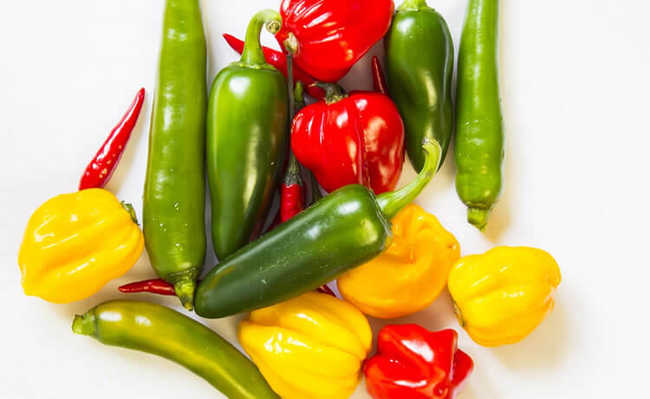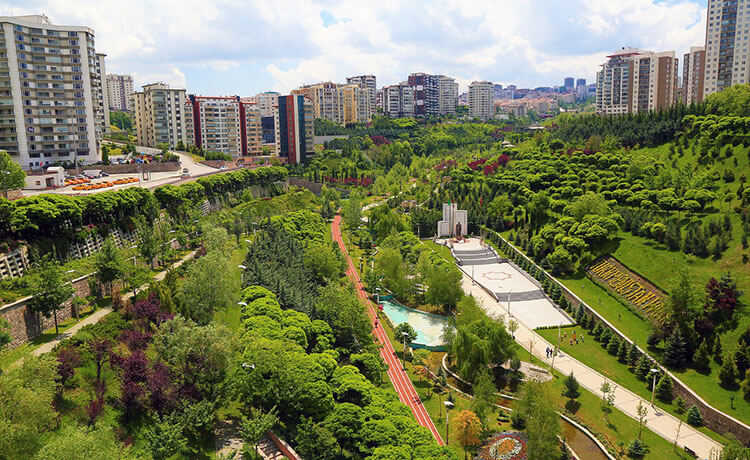Books on the environment and sustainability
We made a selection of books on the environment and sustainability to help those who want to stay on top of the topic

Image: Grant Ritchie on Unsplash
The Climate Observatory has made a list of books on the environment for those who need to become familiar with the topic. We took the opportunity to gather some suggestions and suggest readings to delve deeper into the theme of sustainability as well. Check out the selection and enjoy reading!
Books on the environment and sustainability
50 great environmentalists - from Buda to Chico Mendes, by Joy Palmer
The book brings to light the relationship between human evolution and environmental degradation. It presents, in clear and objective texts, the ideas and doctrines of fifty stimulating personalities - from all over the world, from antiquity to the present day - who have had an indisputable influence on environmentalist action and thought.
Green Philosophy, by Roger Scruton
The author seeks to develop an alternative look at environmental problems, starting from a philosophical analysis. He proposes a perspective of the problems so that they are seen as ours and that we can solve them, using morals. Thinking about the environmental issue as a whole, Scruton uses philosophy, history, psychology, economics and ecology.
He defends local initiatives against global schemes, civil association against political activism, and small foundations against mass campaigns. The author criticizes top-down regulations and fixed movements and their flags, seeing the environmental problem as a loss of balance.
The Responsibility Principle, by Hans Jonas
The book analyzes classical and modern ethics and seeks to demonstrate how they cannot deal with the possibility or the future, but only with proximity and with the present. Based on this impossibility of classical and modern ethical systems, Jonas proposes his thesis: we must avoid risking future human life, that is, given the inevitable advances in technology, we must ask ourselves if we have the right to risk the future life of humanity and the planet .
Far beyond the green economy, by Ricardo Abramovay
With natural resources increasingly scarce, consumption increasing and wealth concentrated, the book talks about how it is a matter of time for the entire economy and the environment to collapse. What companies do today and are willing to do in the near future is of great importance, but it is not enough. That's why the book is about how we need to rethink our global economy and analyze the way we consume and live.
Sustainable Development - The challenge of the 21st century, by José Eli da Veiga
The debate that pitted capitalism and socialism as mutually exclusive polar opposites tends to turn out to be as unimportant for the third millennium as the debate between Catholics and the various reformers in the 16th and 17th centuries about what constituted the true Christianity. Increasingly, a probable non-capitalist future is no longer identified with socialist utopia. In this context, sustainable development - with all the ambiguities and insufficiencies inherent in the expression - certainly heralds the utopia that will take the place of socialism. This is the central thesis of this book, which seeks to scrutinize what the idea of sustainable development really brings about.
Vandana Shiva's Monocultures of the Mind
In a lucid and accessible way, the author examines the current threats to the planet's biodiversity and the environmental and human consequences of its erosion and replacement by monocultural production. It shows how the new Convention on Biodiversity has been severely undermined by a mix of diplomatic dilution during the negotiation process and Northern Bi-tech interests that are making money from new biotechnologies.
The Origin of Species, by Charles Darwin
It may seem strange, but the book is still regarded as one of the most innovative and challenging biological treatises ever written. With its approach to evolutionary processes, it shocked much of the western world when it was launched in 1859. Charles Darwin introduced his first readers to theories of natural selection, starting fervent discussions on the subject. Despite the fierce controversies, the theses of evolutionism remain until today.
Atlas: Geography of Pesticide Use in Brazil and Connections with the European Union, by Larissa Ribeiro
This Atlas is the result of intense work that has been developed over the last three years. All the technical part of cartography and design was carried out jointly. The idea is that the information contained here can circulate and can be an important tool for raising awareness. and, also, support for public policies involving the protection of the population exposed to pesticides. The book is available for free download.
Federal Constitution - several articles
Start with the basics. In Brazil, the Constitution is a good starting point for anyone interested in environmental legislation. Some interesting articles are article 225, which deals with the ecologically balanced environment, a right for all and a common good; article 231, on indigenous peoples, and article 170, which presciently institutes the defense of the environment as a principle of economic order in Brazil and also establishes the social function of property.
In Iron and Fire, by Warren Dean
A great book about the environmental history of Brazil, even if written by an American. Dean (1932-1994), a professor at New York University, went deep into the country's soul by telling the nation's 500 years of history (and another 13,000 of prehistory) from the point of view of the Atlantic Forest. Early on, Dean remembers that the first act of Europeans when stepping into Pindorama was to cut down a tree (to make a cross).
From then on, to the Atlantic Forest, it went downhill. Several of the themes that are still there today in the environmental debate, such as the flawed notion that development equals deforestation, land grabbing, the absurd inefficiency of the rural economy and the organized resistance of sectors of society to destruction, appear in the book and the reader realizes that they are old – things that Brazil has not resolved yet, or resolved badly. It should be mandatory reading in Enem.
An environmentalist trajectory, by Paulo Nogueira-Neto
These are the diaries of the author, a biologist from São Paulo who created the Special Secretariat for the Environment in 1973 (which would later become the Ministry of the Environment). He reports more than 40 years of career to conserve the country's natural heritage. “Dr. Paulo”, as he is known, narrates from the perspective of a protagonist or close observer some of the greatest environmental battles in Brazil.
It is a reading to understand that the concern with the environment in the country, far from being an imported fad or an external imposition, dates back a long time and is informed by the best science carried out in Brazil by Brazilians. Nor is it a “left” agenda: in fact, one of Paulo Nogueira's great struggles was to convince the military, in the middle of the dictatorship, that “pollution has nothing to do with party politics”.
silent spring, by Rachel Carson
Published in 1962, the American Chemistry Book inaugurated modern environmentalism by demonstrating, based on extensive epidemiological evidence, field data and government documents, the link between pesticides and harm to health and the environment. The book forced the US government to ban DDT and today an entire class of highly lethal pesticide molecules, the organophosphates, is banned.
The chemical industry didn't like it and ran a campaign against Carson, which was called “hysterical”. "When the public protests, faced with obvious evidence of the harmful results of pesticide application, they are fed little tranquilizer pills of half-truth."
the burning season, by Andrew Revkin
Translated in Brazil as burn time, death time, veteran environmental reporter's book. New York Times (which became a film with Raul Julia) tells the story of the murder of Chico Mendes, the movement of draws in Acre and the struggle to preserve the Amazon. The book was produced from a detailed journalistic investigation and without ideological bias.
The will of the forest man – Chico Mendes by himself, by Cândido Grzybowski (org).
Another option to learn more about this fundamental character in Amazonian history is this book organized by Cândido Grzybowski and published the year after the murder of the union leader, based on interviews by Chico Mendes himself.
Fifth Assessment Report and Special Report on Global Warming of 1.5 degrees, of the IPCC (Executive Summary)
The AR5 executive summary is the fifth major report by the United Nations climate panel that synthesizes all the scientific knowledge about global warming, its impacts and ways to combat it. There are three documents of about 20 pages each that explain why the phenomenon is not a leftist conspiracy to end the West. After reading AR5, you can go to the IPCC website and download the executive summary of SR15, the special report on 1.5°C warming released last year, which competes for the title of scariest scientific paper of this century.
Amazon, by Bertha Becker
The author, who died in 2013, was the greatest geographer in Brazil. This educational booklet by Becker is an introduction to the region. Becker deals with the physical space of the Amazon in the country, the expansion of the agricultural frontier, the occupation “by the foot of the ox” in the 1970s, the mining projects and the problems caused by large estates, such as violence in the countryside. A consistent reading, current and without ideology.
The Boy with the Green Finger, by Maurice Druon, and The Lorax, by Dr. Seuss
Let's start from the beginning, right? the boy with the green finger tells the story of Tistu, an eight-year-old boy whose parents decide that the best way to learn about the world is to take care of the garden, where he discovers that his fingers have the power to make plants grow and flourish. This classic from French children's literature deserves to be read together with The Lorax (translated in Brazil as O Lórax), a chilling parable about economic externalities. The book tells the story of Once-Ler, a bankrupt capitalist who deforested a paradise to feed his factory and must bear the consequences later.
Collapse – How Societies Choose Failure or Success, by Jared Diamond
This now classic catatau by the University of California geographer seeks examples from ancient and recent history to explain the end of human societies, from the Mayans to the Vikings in Greenland, from the Anasazi in the US to the Rwanda of genocide. His thesis, supported by much data, is that decline is not always inevitable, but societies often choose to make the wrong decisions – and often they have to do with the use of natural resources. Diamond recounts how total deforestation wiped out the Rapa Nui, the advanced indigenous society of Easter Island, and Haiti, a country that had a very different fate from another nation on the same island, the Dominican Republic, which did not wipe out its forests. A dismal message for a Brazil that seems to have chosen to make the wrong decisions in the environmental area.
- Ecological suicide: what do humans and bacteria have in common?
Environmental impact assessment, by Luís Enrique Sánchez
This book is considered the bible of environmental licensing – which, far from being a jabuticaba, is governed by strict legislation around the world, including the United States. The work presents technical concepts, tools and national and international case studies. Reading helps you understand why self-licensing is an idea that does not stand still.










